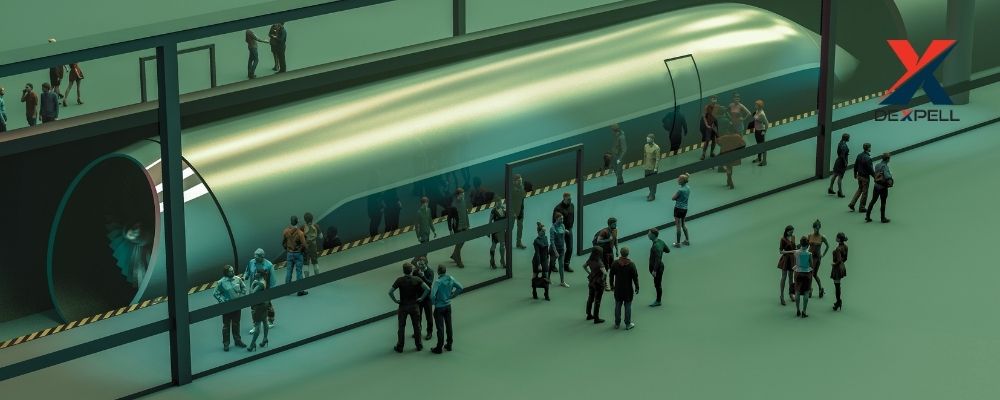Hyperloop: The Transportation of the Future
Hyperloop is a revolutionary transportation concept that offers an alternative to traditional transportation methods in today's world. It was first proposed by Elon Musk, the CEO of SpaceX and Tesla, in 2013. This high-speed transportation system envisions capsules traveling through vacuum tubes, allowing for significantly higher speeds than conventional trains. With this design, it becomes possible to complete journeys in just minutes that would take hours by conventional means. Hyperloop is a technological marvel with the potential to provide energy-efficient and environmentally friendly transportation.
Advantages of Hyperloop
Hyperloop offers numerous advantages. Firstly, the high-speed travel it promises will make intercity transportation faster and more efficient, reducing traffic congestion. Additionally, this system can be powered by renewable sources like solar energy, making it an eco-friendly option. The cost of implementing Hyperloop could also be relatively low because constructing tubes above ground is more economical compared to traditional train lines. These factors demonstrate that Hyperloop could play a significant role in the future of transportation.
Towards the Future with Hyperloop
Hyperloop technology has not yet been fully realized, but many companies and initiatives are developing and testing prototypes for this exciting project. Work is also ongoing in several countries on potential Hyperloop routes. In the future, this technology could enable faster, more efficient, and environmentally friendly intercity travel. However, this innovative system faces various challenges in terms of engineering, safety, and cost, so it is still uncertain when and how it will be implemented.
Hyperloop is a revolutionary transportation concept that offers an alternative to traditional transportation methods in today's world. It was first proposed by Elon Musk, the CEO of SpaceX and Tesla, in 2013. This high-speed transportation system envisions capsules traveling through vacuum tubes, allowing for significantly higher speeds than conventional trains. With this design, it becomes possible to complete journeys in just minutes that would take hours by conventional means. Hyperloop is a technological marvel with the potential to provide energy-efficient and environmentally friendly transportation.
Advantages of Hyperloop
Hyperloop offers numerous advantages. Firstly, the high-speed travel it promises will make intercity transportation faster and more efficient, reducing traffic congestion. Additionally, this system can be powered by renewable sources like solar energy, making it an eco-friendly option. The cost of implementing Hyperloop could also be relatively low because constructing tubes above ground is more economical compared to traditional train lines. These factors demonstrate that Hyperloop could play a significant role in the future of transportation.
Towards the Future with Hyperloop
Hyperloop technology has not yet been fully realized, but many companies and initiatives are developing and testing prototypes for this exciting project. Work is also ongoing in several countries on potential Hyperloop routes. In the future, this technology could enable faster, more efficient, and environmentally friendly intercity travel. However, this innovative system faces various challenges in terms of engineering, safety, and cost, so it is still uncertain when and how it will be implemented.










